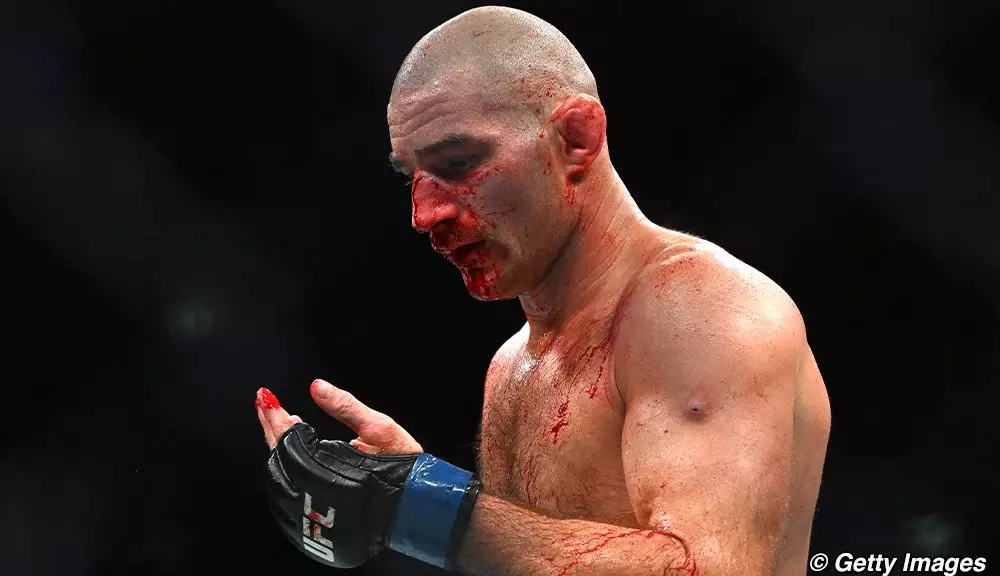In the world of mixed martial arts, every fight is an opportunity for fighters to display their skills and strategies, especially when it comes to title matches. Sean Strickland’s performance at UFC 312 against Dricus Du Plessis was highly anticipated, given their contentious first bout at UFC 297, where Strickland narrowly lost by split decision. This rematch was not only a chance to reclaim the middleweight title but also an opportunity for Strickland to demonstrate growth and resilience. Unfortunately, the fight fell flat, leaving fans and coaches scratching their heads and questioning his tactics.
Throughout the five-round contest held at Qudos Bank Arena in Sydney, Australia, Strickland failed to show up as the aggressive, formidable fighter he was known to be. Instead, he appeared tentative and uninspired, an observation echoed by his head coach, Eric Nicksick. Speaking candidly on “The Ariel Helwani Show,” Nicksick remarked that Strickland seemed to be “sleepwalking,” a concerning description from someone tasked with preparing the fighter for battle. A lack of energy and engagement can be detrimental in such high-stakes situations, and it became evident that Strickland was unwilling to take the necessary risks to turn the tide of the fight.
As the fight progressed, the lack of strategic adaptations from Strickland was striking. Throughout the rounds, he leaned heavily on a predictable offense, primarily relying on jabs and kicks that quickly became easy for Du Plessis to read and counter. Nicksick articulated the futility of this approach, likening it to a football team employing a slow-paced game plan while trailing by a significant margin. To win, fighters must embrace creativity and risk, stepping outside their comfort zones to surprise opponents. Strickland’s decision to stick to a conservative strategy may have ultimately cost him the title.
Nicksick’s frustration only amplified as Strickland failed to heed his coach’s call for change. The coach’s desire for more inventive strikes, including head kicks and knees, was dismissed by Strickland’s apparent complacence in the ring. Moving beyond mere survival is crucial in title bouts, and Strickland’s inability to adapt left him vulnerable to Du Plessis’ onslaught, who efficiently capitalized on Strickland’s predictability.
Every boxer aspires to capture the championship title, but with such opportunities comes the burden of enormous expectations. Strickland’s lack of performance at UFC 312 raised questions not only about his physical readiness but also his mental approach to such significant moments in his career. Throughout the fight, it was clear that he was not fully present, and the disappointment expressed by Nicksick reflected the sentiments of many in the MMA community who believed Strickland could have delivered a better fight.
Moreover, the UFC’s decision to place Strickland in another title fight following his split decision win against Paulo Costa was met with skepticism, especially given Chimaev’s undefeated status and impressive performances. Critics wondered if the promotion had misplaced faith in Strickland’s ability to contest effectively, especially after a lackluster showing in the rematch against Du Plessis.
The aftermath of UFC 312 leaves both Strickland and his coaching team in a state of reflection regarding the future. Whether Strickland wants to bounce back into title contention or reassess his approach to the sport remains a pressing question. Nicksick expressed his desire for a conversation with Strickland about his intentions, emphasizing that whether the goal is to pursue titles or merely financial stability, clarity is vital.
The fight game can be unforgiving, and a lack of motivation or dedication can lead to short-lived careers. Strickland must decide if he is committed to honing his skills or if he’s satisfied with merely participating. As Nicksick pointed out, many athletes never get the chance to compete for a championship. Recognizing this opportunity is crucial for any fighter aspiring to leave a mark in the sport.
Sean Strickland’s performance at UFC 312 was emblematic of what happens when fighters fail to bring their A-game to the biggest stages. The need for adaptability, engagement, and risk-taking in a championship fight cannot be overstated, and the lessons learned from this rematch will be pivotal for Strickland moving forward. He stands at a crossroads, and how he chooses to act in response to this setback may define the next chapter of his career in the unforgiving world of mixed martial arts.

